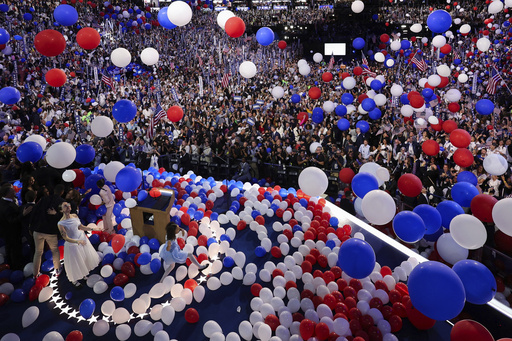In a closely contested election race where both sides are striving for an advantage, having more viewers tune into their midsummer convention may appear crucial for a political party. However, historically, this indicator has proven to be unreliable. Over the past 16 presidential election cycles since 1960, the party with the most-watched convention on television has won the presidency eight times, and lost eight times.
According to Nielsen, by the end of the first three nights of each convention this summer, the Democrats amassed an average of 20.6 million viewers, while Republicans drew in 17 million in July. Ratings for the Thursday night, featuring Vice President Kamala Harris’ acceptance speech, are yet to be released.
It has been noted that despite the Democrats having more popular conventions in 12 out of the last 16 elections, they emerged victorious in only eight of them. The latest instance of a party losing despite having a more popular convention was in 2016, with Hillary Clinton’s nomination outperforming Donald Trump’s by a slim margin.
Typically, the final night of a convention, marked by the nominee’s acceptance speech, garners the most viewers. Republican nominee Trump’s July speech reached 25.4 million viewers, albeit falling short due to its late timing on the East Coast.
In past elections, there have been instances where the party with the most-watched convention did not win the presidency. This trend was observed in the period between 1976 and 1988, including during Reagan’s landslide victories. Jeff Greenfield, a veteran journalist, pointed out that people are more inclined to watch their affiliated party’s convention, as evidenced by the recent ratings dominance of Fox News for the GOP convention and MSNBC for the Democrats.
Moreover, the star power at a convention, such as potential appearances by celebrities like Beyoncé or Taylor Swift at the Democratic event, can also impact viewership. Greenfield highlighted the entertainment aspect of the conventions, indicating that the Democrats had an advantage in this regard.
In conclusion, while TV ratings for political conventions may hold some significance, especially in terms of viewership engagement, they do not necessarily correlate with election success. The convention ratings are just one aspect of the broader political landscape, and the true outcome lies with the voters on Election Day.


